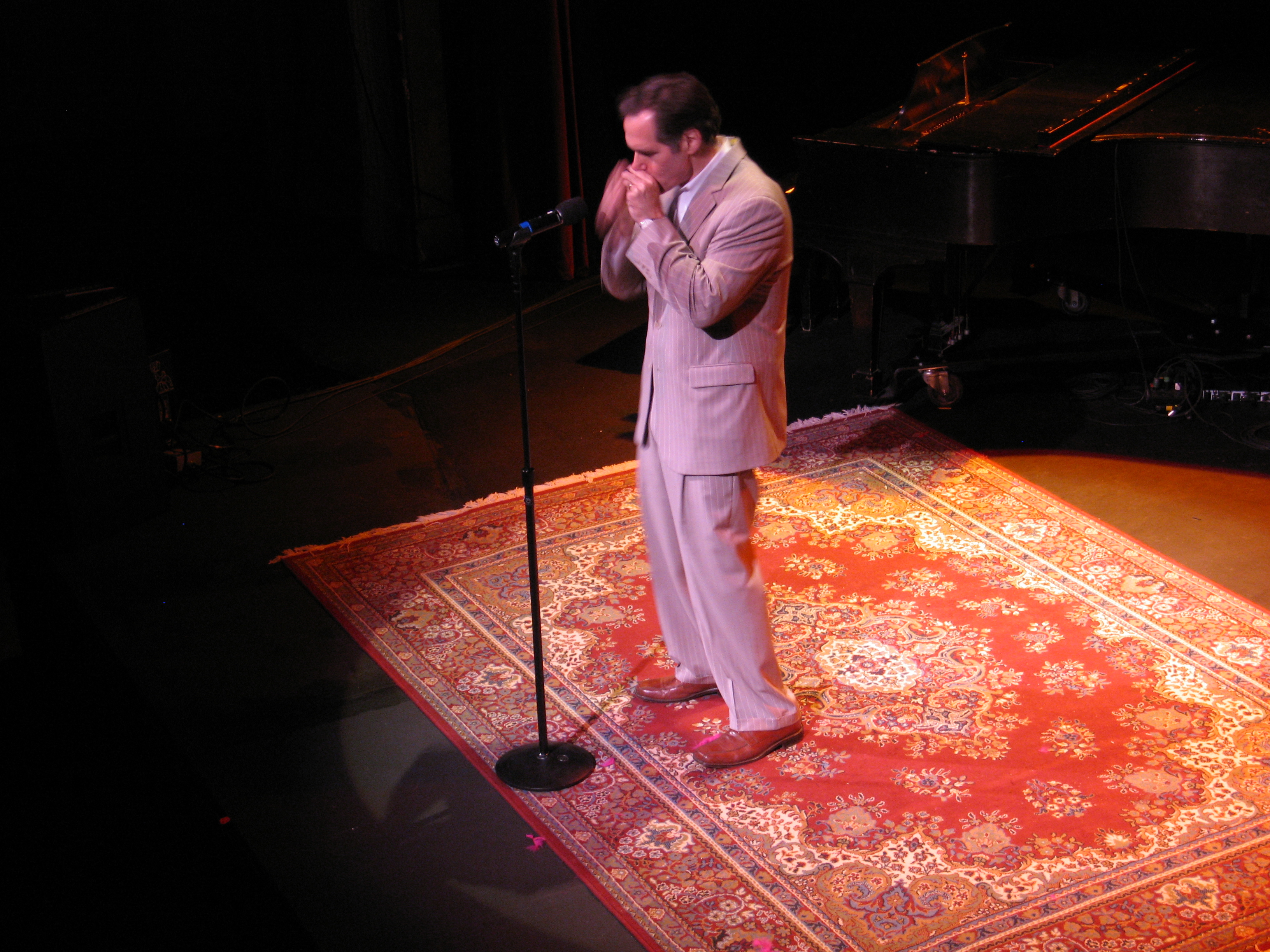
Sam Hinton is required listening for harp players
A friend sent me a copy of Sam Hinton’s double CD set “Master of the Solo
Diatonic Harmonica”recently, and I’ve been working my way through it.
The set contains a massive amount of material, both spoken and played on
the harmonica, and it takes time to hear it all. Below are some of my
early impressions.
Hinton has a strong and very individual style. Like any strongly defined
style, significant choices have been made about what’s in and what’s out.
In Hinton’s case, the most important choice is to treat the melody as the
key element in his arrangements. In almost every measure of almost every
piece I’ve listened to so far, the melody is on the top of the arrangement,
throughout the piece. I don’t think I’ve heard any improvisation yet, and
I haven’t heard a lot of vamping-till-ready either.
The magic in Hinton’s work is the remarkable range of accompaniments he
lays against the melody. I think it’s fair to say that any harmonica
player could learn something useful about chord voicings from listening
to Hinton’s arrangements. The range of chords he manages to get out of
 the instrument while simultaneously doing a bass line and melody is
fresh and powerful, both harmonically and rhythmically. My guess is
that Hinton thinks of himself as a one-man-band playing for dancers,
which would explain both the emphasis on melody and the attention he
gives to varying the accompaniment while maintaining a strong rhythmic
pulse.
Hinton’s repertoire consists mostly of non-blues folk material,
including lots of Celtic tunes, American folk songs, and so on.
There is very little apparent blues influence in his playing–compare
the way he does a train to the way Sonny Terry does it, for example.
Since there’s apparently no improvisation, there’s also no jazz
influence in the stuff I’ve heard so far. Probably in order to maximize
 the clarity of his multiple lines, there’s very little obvious
manipulation of tone with hands, throat, etc. To some extent, Hinton
treats the harmonica as an accordian or piano–the notes are there and
he plays them, clearly and cleanly, with good balance between upper and
lower registers. He uses bending sparingly, and apparently to fill in
 missing notes, not to create an emotional effect.
Most of Hinton’s stuff is done on standard-tuned diatonics in 1st
position. When he wants to expand his harmonic range, he uses two harps
 at once. He occasionally uses a harmonic minor harp, and sometimes a
Chordomonica II, which is great instrument that’s not widely enough
known or used. (I own one, and I don’t use it everyday, but it does
some very cool things that are very hard to do with any other instrument.)
Given his obvious ability to come up with cool chord voicings, I
think he could get a lot of mileage out of a few non-standard diatonic
tunings, with the Natural Minor the obvious choice given his preference
for 1st position. However, natural Minor harps didn’t become commercial
ly available until the late 1980s, by which time Hinton’s style and much
of his repertoire was fully formed. (As of the time of this recording,
Hinton was in his 80s.)
Like I said, I think any harmonica player could learn something from
Hinton. One of the exciting things about Hinton’s work is the potential
 to build on it in new and interesting ways–for example, by applying
his discoveries to blues, with all the additional color and emotion that
 implies, or including non-standard tunings, or electronics to color
the sound and bring out different aspects of the arrangements. You can
hear a lot of potential for further exploration easily in these
recordings because of the utter clarity of Hinton’s conception and
execution.
In short: Hinton is an original with a lot to offer, and is obviously
required listening for harmonica players.
Tags In
Related Posts
Leave a Reply
You must be logged in to post a comment.
WHAT’S NEW
Categories
- Audio/Video
- Blog
- Blue Future
- Digitech RP Tricks and Tips
- Discography, CDs, Projects, Info, Notes
- Featured Video
- For the Beginner
- Gallery
- Hunter's Effects
- Hunter's Music
- Huntersounds for Fender Mustang
- Meet the Pros
- More Video
- MPH: Maw/Preston/Hunter
- My Three Big Contributions
- Player's Resources
- Pro Tips & Techniques
- Recommended Artists & Recordings
- Recommended Gear
- Recorded Performances
- Reviews, Interviews, Testimonials
- The Lucky One
- Uncategorized
- Upcoming Performances
- Zoom G3 Tips and Tricks